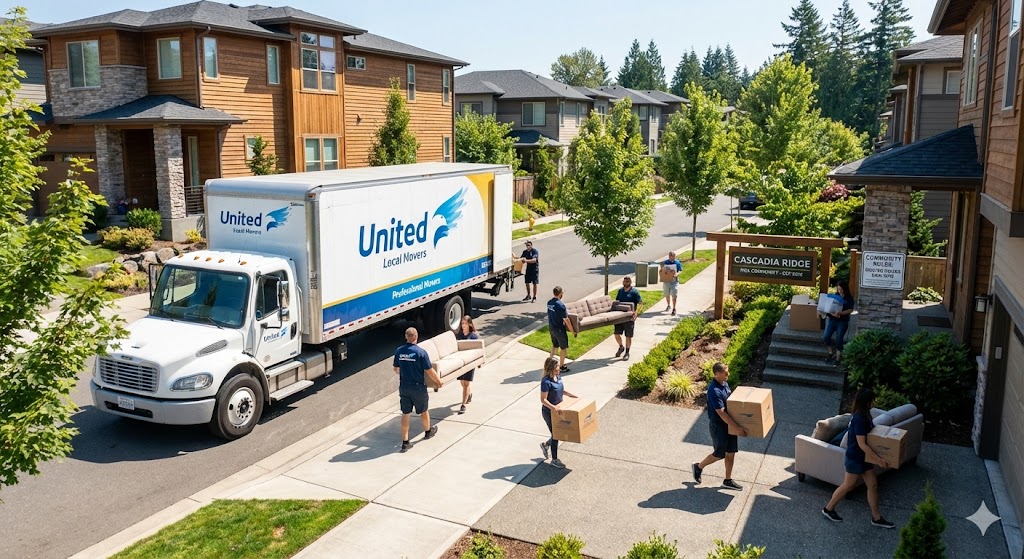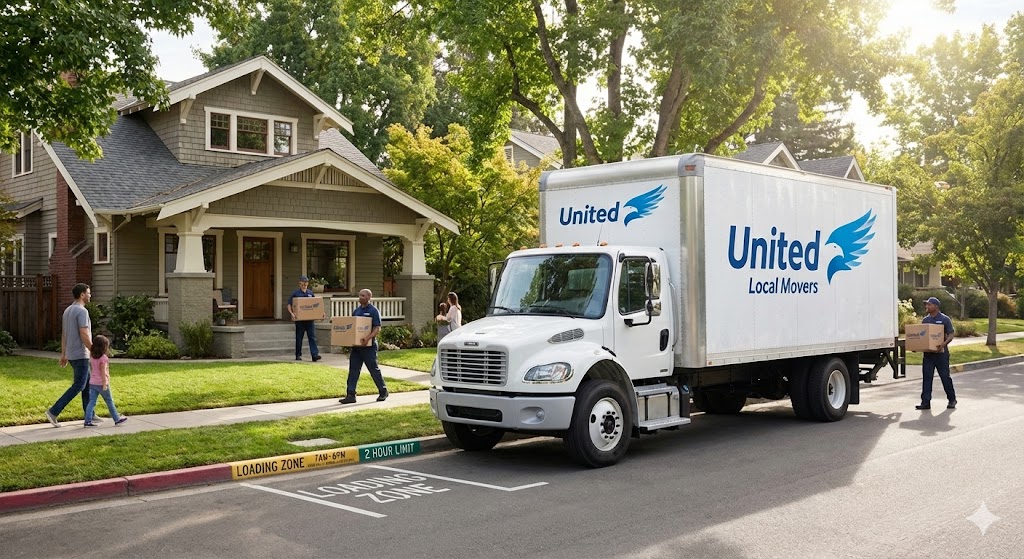When house hunting, most people focus on square footage, price, neighborhood safety, and school districts—but one of the most important factors often gets overlooked: commute time.
Moving into a new home that adds just 15–20 minutes to your daily drive can significantly impact your routine, budget, and overall happiness. At United Local Movers, we believe in helping families make informed decisions—not just about moving logistics, but about how their new space fits into everyday life.
Why Commute Time Should Be a Top Priority
An extended or unpredictable commute can affect more than just your schedule—it influences your well-being and quality of life:
- Work-life balance: Extra travel eats into personal time for family, hobbies, and rest.
- Transportation costs: More driving means higher fuel, maintenance, and toll expenses.
- Stress levels: Rush-hour traffic and transit delays start your day off on the wrong foot.
- Productivity: Long commutes can leave you tired before work even begins.
By calculating your expected commute ahead of time, you can avoid future frustration and build a lifestyle that supports your goals—not drains your energy.
How to Accurately Estimate Your Commute
Thankfully, modern tools make it easier than ever to estimate how long your daily trip will take:
1. Google Maps
This is one of the most accurate tools available. Simply input your potential new home address and workplace to get real-time estimates based on departure times, traffic patterns, and transportation mode.
- Compare driving, walking, biking, and public transit routes
- Use the “Depart at” feature to simulate morning and evening rush hours
- Check “Typical traffic” for average times throughout the week
2. Waze
For drivers, Waze provides live traffic updates powered by user reports. It’s especially helpful for navigating construction zones, accidents, or sudden road closures.
3. Moovit (for Public Transit)
If you rely on buses, trains, or subways, Moovit gives detailed transit schedules, route changes, and estimated wait times—making it ideal for urban commuters.
4. Local Department of Transportation Sites
Cities often publish official traffic reports or commute calculators that show seasonal trends and major infrastructure projects affecting travel time.
Factors That Influence Daily Commute Time
Distance alone doesn’t tell the whole story. Consider these key variables when evaluating a new location:
- Traffic congestion: Morning and evening rush hour can double your travel time.
- Road conditions: Watch for frequent bottlenecks, tolls, or poorly maintained highways.
- Public transit reliability: Check for delays, transfer points, and last train/bus times.
- Weather patterns: Rain, snow, and fog can add significant time in certain regions.
- Parking availability: Don’t forget to factor in time spent searching for a spot near your office.
Try a Trial Run Before You Move
The best way to understand your commute is to test it out. If possible:
- Drive from your potential new home during actual peak hours
- Test both morning and evening trips
- Try different transport methods—car, train, bus, bike
You might uncover unexpected slowdowns like school zone traffic, roadwork, or limited parking that maps don’t always reflect.
Consider Household Needs
If multiple family members work or study in different locations, your move needs to support everyone’s routine. Think about:
- Different work hours and how they affect commuting overlap
- Need for remote work setup or nearby co-working spaces
- Access to reliable internet if working from home
- Childcare timing if drop-off/pick-up schedules change
A smart relocation considers all household needs—not just one person’s job.
Calculate the Financial Impact
Commute time isn’t just a time issue—it has financial consequences too:
- Fuel and toll costs increase with longer drives
- Vehicle wear and tear affects maintenance budgets
- Transit passes may be pricier in some areas than others
- Extended childcare becomes necessary if early departures or late returns become the norm
Use online commuting cost calculators to compare housing options based on total monthly expenses—including transportation.
How United Local Movers Supports Smart Relocations
We know a great move isn’t just about boxes and furniture—it’s about fitting your new home into your life. At United Local Movers, we help clients plan relocations that align with work, school, and lifestyle needs.
- We provide guidance on neighborhoods based on proximity to workplaces
- We coordinate moves around your schedule to minimize disruption
- We ensure your professional gear and home office equipment arrive safely
Need Time Before Settling In?
Sometimes, your new home isn’t ready immediately after your move—or you’d like to take a break before unpacking. That’s where our temporary storage solutions come in handy.
With flexible rental periods and secure facilities, we give you time to adjust without pressure. Store your belongings while you settle into your new routine—whether that takes days or weeks.
Final Thoughts
Don’t let an unexpected commute turn your dream home into a logistical nightmare. By taking time to calculate travel time before signing a lease or purchase agreement, you’ll protect your time, reduce stress, and set yourself up for a smoother transition.
At United Local Movers, we’re here to help you every step of the way—from planning your move to storing items while you adjust. Contact us today to learn more about how we can support your relocation with flexibility, transparency, and care.



